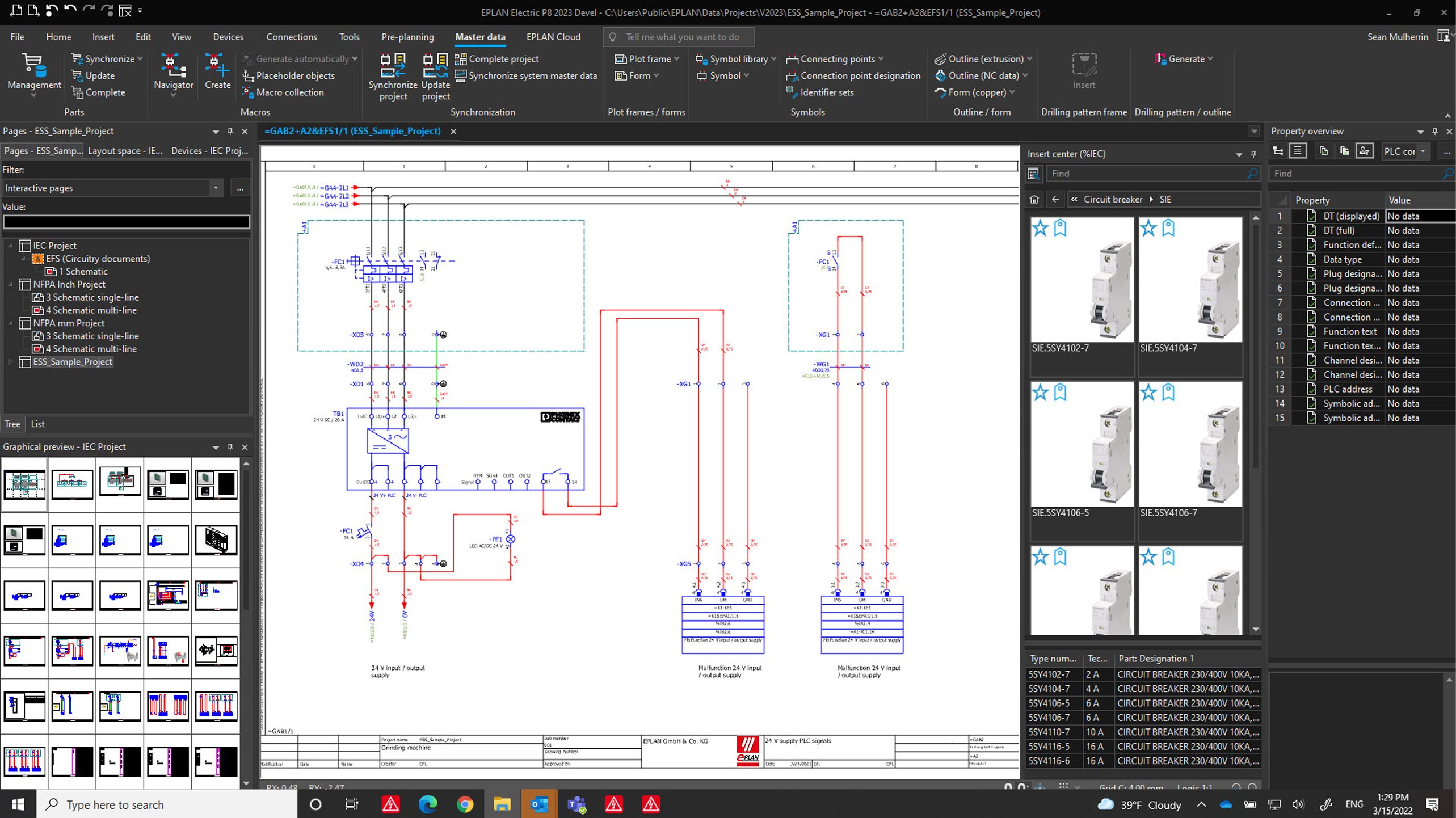Author
 Andrew Mutch
Having previously worked as an aircraft technician with HM Forces, Andy is one of our Professional Services Consultants and has been with EPLAN for 10 years. Part of Andy's role is to actively analyse customers processes, develop solution concepts and workflows for customer requirements. Andy is also our resident Harness expert!
Mutch.a@eplan.co.uk
Andrew Mutch auf LinkedIn
Andrew Mutch
Having previously worked as an aircraft technician with HM Forces, Andy is one of our Professional Services Consultants and has been with EPLAN for 10 years. Part of Andy's role is to actively analyse customers processes, develop solution concepts and workflows for customer requirements. Andy is also our resident Harness expert!
Mutch.a@eplan.co.uk
Andrew Mutch auf LinkedIn
The Downfalls of Outdated CAD Software for Electrical Engineers
The Disadvantages of Traditional CAD Software for Electrical Engineers
Developers usually design traditional CAD packages for mechanical engineers, so electrical design engineers often find CAD software solutions inadequate. These packages do not have the special features needed for electrical schematic drawings. Sadly, many standard CAD platforms lack these built-in capabilities.
This leads to a lot of frustration and unnecessary manual editing. Sometimes, this leads to a complete reworking of the design. Electrical engineers often spend a lot of time checking and revising their work. This process takes a long time, and the repetition can lead to mistakes.
The later an engineer discovers a mistake, the more it costs to fix it. Overall, this increases the likelihood of design mistakes which therefore impacts production.
This issue can lead to a waste of both time and resources, which can quickly mount up throughout a project lifecycle.
Some computer aided design CAD packages aren't compatible with current electrical design technologies, standards, and tools already in use. This obstacle can create a issue for electrical engineers who may be unable to access the features they need. This can contribute to confusing the required level of standardisation throughout the project.
Most electrical design teams can benefit from exploring dedicated CAD software for electrical schematics. These solutions are better suited to the specific needs of electrical engineers and the manufacturing process.
CAD Software For Electrical Engineers: The Advantages Of EPLAN
EPLAN is a great alternative to traditional computer aided design packages for electrical design engineers. EPLAN eliminates many of the daily issues engineers face when designing electrical projects. CAD software for electrical engineers should be easy and intuitive to use.
Key Features of EPLAN's ECAD software:
- User-friendly interface
- Comprehensive tools and features tailored for electrical engineering purposes
- High level precision control in design processes
- Communication tools to share comments and track changes in real time
EPLAN's design automation capabilities keep the advantages rolling in: - Reduce repetitive, manual tasks often found in traditional CAD solutions
- Frees up engineers to focus on creative and innovative problem-solving
- Allows more time for addressing a wide range of design challenges
Electrical engineers who switched to EPLAN's ECAD find: - Faster design completion times
- Increased accuracy in designs to create precise schematics
- Improved efficiency in the design process
Is EPLAN Only For Large-Scale Projects?
EPLAN is great for large-scale projects, since we offer better organisation and automated responses. Our industry standard software also provides efficient cloud-based data management. These tools help improve communication and collaboration among everyone involved.
However, it is a misconception that EPLAN is only beneficial for large-scale projects. Many small-scale customer successfully use EPLAN eCAD software for product development.
Scalable and Configurable Tools: Early Error Detection
EPLAN’s features are configurable to the needs of any electrical design project design. This helps engineers spot errors early in the design phase before they pass through to production.
EPLAN Pro Panel helps engineers see their component layouts, ensuring that the chosen components will fit into the panel. This feature saves valuable time in design as well as on the shop floor during production and assembly.
Automated Processes + Learning Materials
EPLAN can eliminate repetitive manual tasks and automate processes that could take days in other CAD systems. Users can access EPLAN's cloud-based solutions for free. These include manufacturer component data and regularly updated e-learning materials.
Discover more free onboarding materials and various project templates. Guided installation services help your team start quickly and reduce downtime. Comprehensive annual updates keep you up to speed with the latest changes in electrical design practices.
EPLAN First Look: Saving Time in Electrical Design
In addition to improving efficiency, EPLAN's CAD software can also enhance the overall quality of the designs produced. With access to up-to-date standards and best practices, engineers can create more reliable and compliant schematics. Adhering to industry standards is crucial as this could impact the safety and functionality of the final product.
In the end, using the right CAD tools can improve project results. It can also boost productivity and create a stronger team environment. Embracing specialised software is an important way to stay competitive and deliver high-quality results.
EPLAN may be the ECAD alternative you are seeking. With its benefits including cloud-based solutions and faster design times, it may improve your electrical projects. Why not watch this short webcast for your first look at the EPLAN Platform?



Comments